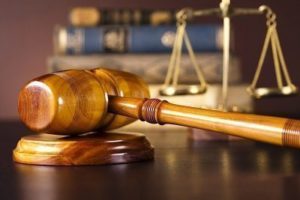 Entities or individuals that permit members of the public to access their property generally owe those visitors the duty to make reasonable efforts to keep their premises safe. While a property owner does not insure the safety of those who enter upon the property, the property owner’s failure to remove hazards that it knows, or reasonably should know, exist or alternatively to warn people about the hazard, may expose those property owners to financial liability when a person is injured as a result of the hazard.
Entities or individuals that permit members of the public to access their property generally owe those visitors the duty to make reasonable efforts to keep their premises safe. While a property owner does not insure the safety of those who enter upon the property, the property owner’s failure to remove hazards that it knows, or reasonably should know, exist or alternatively to warn people about the hazard, may expose those property owners to financial liability when a person is injured as a result of the hazard.
Some examples of the more common hazards that may exist on properties include inadequate security, dangerous animals, collapses of ceilings or floors, falling shelves or products, defective stairs, dangerous chemicals, tripping hazards caused by sidewalks with holes or covered in snow or ice, and slips and falls caused by wet, slippery, or ice-covered floors. The injuries caused by these hazards can be very severe — among other things, falls are considered one of the leading causes of traumatic brain injuries. The Charlottesville personal injury lawyers and Charlottesville Slip and Fall Lawyers of MartinWren, P.C. are experienced in handling premises liability, slip and fall, and trip and fall cases.
The specific duties owed to a member of the public entering upon another’s property depend, at least in part, on the status of the person visiting the particular property. Generally speaking, a visitor will be considered to be either an invitee, a licensee, or a trespasser — each of which has different rights.
- Invitees are those individuals who have been extended an express or implied invitation to enter upon the property and the individual enters pursuant to that invitation. A common example of an invitee is a shopper at a grocery store. The property owner owes his invitee the duty to use ordinary care to maintain his premises in a reasonably safe condition. Specifically, the property owner must remove hazards that he knows about, or reasonably should know about. If the property owner does not remove the hazard, then he has to take reasonable steps to adequately warn his invitees of the hazard, unless the hazard is open and obvious.
- Licensees are individuals who enter property for their own convenience and benefit with the knowledge and consent of the property owner. An example of a licensee is a social guest or a firefighter who enters property for emergency reasons. A property owner is liable to a licensee for injuries caused by a dangerous condition if the owner knows or should know of the condition, understands or should understand that condition creates unreasonable risk of harm, should not expect the licensee to be aware of the dangerous condition, and fails to exercise reasonable care in removing the danger or warning the licensee of the danger.
- Trespassers are, by definition, those individuals who enter upon property without the owner’s permission. Property owners generally do not owe duties of care to trespassers, but owners may nevertheless be responsible for injuries that occur to trespassers once owners are aware of the trespassers’ presence on their property. Once known to the owner, trespassers are owed the duty of ordinary care to avoid injuries.
Charlottesville Dangerous Property Lawyers
For a legal consultation with a personal injury lawyer, call (434) 817-3100
Premises liability claims commonly arise in commercial establishments, including restaurants, shopping centers, parking lots, apartment complexes, and hotels and motels. They may also exist on private property due to defective stairs, decks, holes, pools, or what are called “attractive nuisances.” Premises liability, though seemingly involving simple factual situations, can involve an array of complex legal issues and require the representation of an experienced attorney and law firm.
If you have been injured on another’s premises by an unsafe condition, call MartinWren‘s Charlottesville Premises Liability Lawyers and Charlottesville Slip and Fall Lawyers, Jonathan T. Wren or Robert E. Byrne, Jr. at (434) 817-3100.
You will not owe any legal fees unless we recover money for you.
Call (434) 817-3100 or complete a Case Evaluation form



